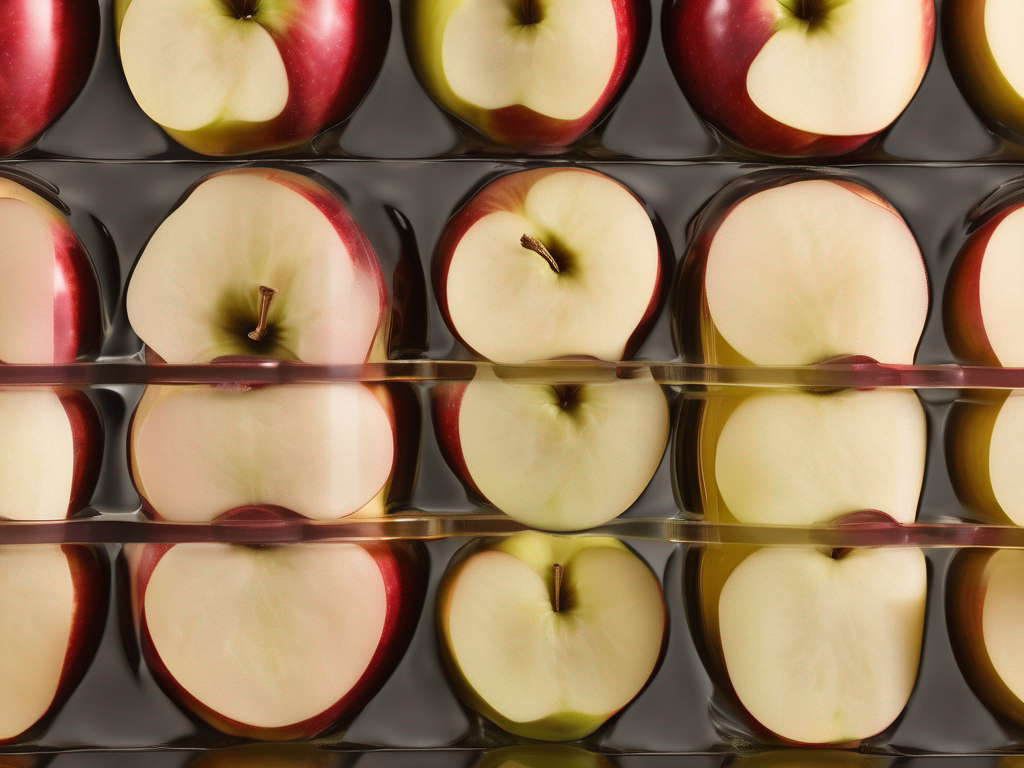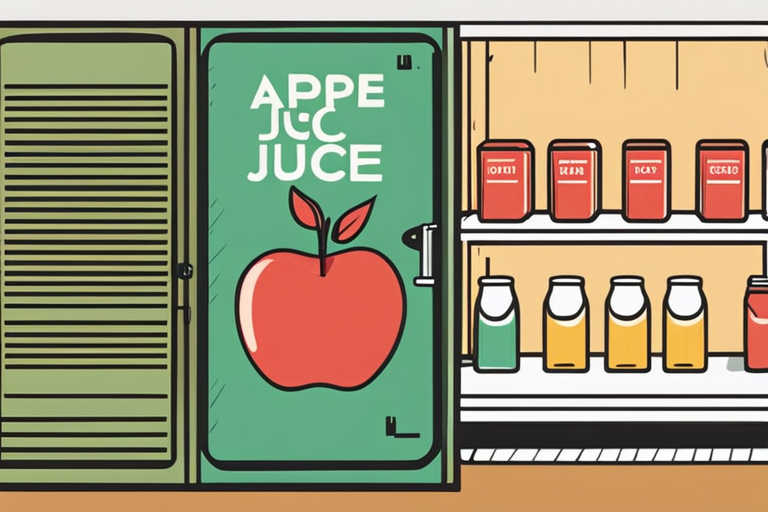
Is Your Refrigerated Unopened Apple Juice Still Good?
Kitchen Essentials We Love
Essential products to help you store and preserve your food safely and extend its shelf life
Disclosure: As an Amazon Associate, we earn from qualifying purchases. This helps support our site and allows us to continue providing free food safety information.
Comprehensive Guide to Apple Juice, Apple Pie, and Food Safety
Understanding Apple Juice Expiration
Apple juice, a popular and refreshing beverage enjoyed by people of all ages, has a limited shelf life due to its high sugar content and susceptibility to spoilage. The expiration date on the bottle or carton of apple juice indicates the last day that the product is guaranteed to be at its best quality. Factors such as packaging, storage conditions, and the quality of ingredients can influence the shelf life of apple juice.
Factors Affecting Apple Juice Shelf Life
-
Packaging: Sealed bottles or cartons are more likely to preserve the juice's freshness compared to open containers.
-
Storage Conditions: Proper storage is crucial for extending the shelf life of apple juice. Exposure to light, heat, and air can accelerate spoilage.
-
Quality of Ingredients: The apples used to make the juice can affect its shelf life. Freshly pressed apple juice may have a shorter shelf life compared to commercially processed and pasteurized juice.
How to Tell If Apple Juice Has Expired
It is essential to check for signs of spoilage before consuming apple juice, even if it is within the expiration date. Signs such as off odor, discoloration, and mold growth indicate that the apple juice may have expired.
Proper Storage of Apple Juice
To maximize the shelf life of apple juice and ensure its safety and quality, follow these storage guidelines:
-
Refrigeration: Once opened, apple juice should be promptly refrigerated at temperatures below 40°F (4°C) to slow down spoilage.
-
Sealed Containers: Store apple juice in airtight containers to prevent exposure to air and contaminants.
-
Avoid Sunlight: Keep apple juice away from direct sunlight to prevent flavor changes and deterioration.
-
Freezing: Consider freezing apple juice in ice cube trays for later use in recipes or smoothies to extend its shelf life.
Safety Precautions for Consuming Apple Juice
Follow these safety tips to prevent foodborne illnesses when consuming apple juice:
-
Check Expiration Date: Always check the expiration date before consuming apple juice and discard it if expired.
-
Avoid Cross-Contamination: Use clean utensils and glasses to prevent cross-contamination with harmful bacteria.
-
Serve Chilled: Serving apple juice chilled inhibits bacterial growth and maintains freshness.
Understanding Apple Pie Storage
Apple pie, a beloved dessert enjoyed year-round, may or may not require refrigeration based on its ingredients, baking method, and storage environment. Factors such as moisture content, microbial growth, and flavor and texture preservation influence the decision to refrigerate apple pie.
Factors Affecting Apple Pie Storage
-
Ingredients Used: Dairy or egg-based fillings may require refrigeration to prevent bacterial growth, while fruit-based fillings can often be stored at room temperature.
-
Baking Method: The way the pie is baked can influence its storage needs.
-
Environmental Conditions: Temperature and humidity affect the longevity of the pie.
Best Practices for Storing Apple Pie
Follow these guidelines for storing apple pie to ensure its freshness and safety:
Refrigeration
-
Cool Completely: Allow the pie to cool before refrigerating.
-
Cover Well: Wrap the pie tightly to prevent drying out.
-
Temperature: Store in the refrigerator at 40°F (4°C) or below.
-
Shelf Life: Refrigerated apple pie can typically last 2-3 days.
Room Temperature
-
Cover: Keep the pie covered to protect it from contaminants.
-
Storage: Store in a cool, dry place away from direct sunlight.
-
Consume Promptly: Pies stored at room temperature should be consumed within 2 days.
Review and Credibility
This comprehensive guide provides valuable insights into the expiration of apple juice, safety precautions, proper storage of apple juice, and the storage of apple pie. By following the outlined guidelines, readers can enjoy these apple-based products while minimizing the risk of foodborne illnesses. The information is sourced from reputable sources and experts in food safety and storage practices.
Enjoy your apple juice and apple pie while prioritizing food safety and quality!
Related Posts:
- Can You Drink Unopened Expired Apple Juice?
- How Long Can You Eat Salad After the Expiration Date?
- Is it Necessary to Refrigerate Papaya for Optimal Freshness?
- How Long Does Canned Pineapple Juice Last?
- When Do Apples Expire: A Guide to Apples' Shelf Life
- The Truth About Egg Expiration Dates
- Canned Pineapple Shelf Life: A Comprehensive Guide
- How Long Does Juice Last After the Expiration Date?
- To Refrigerate or Not: The Ultimate Guide to Storing Apple Pie
- The Ultimate Guide to Frozen Fruit Shelf Life
- How Long Does Fresh Pressed Apple Juice Last?
- Is it Safe to Consume Unopened Applesauce Past the Expiration Date?
- When Do Carrots Expire: A Guide to Carrot Storage and Shelf Life
- Do Apple Pies Need to be Refrigerated?
- Are Eggs Safe to Eat After the Expiry Date in the Refrigerator?
- How Long Does Frozen Fruit Last: A Comprehensive Guide
- Does Rice Wine Vinegar Go Bad?

Can unopened apple juice go bad?
Is it safe to drink unopened apple juice past its expiration date?
How can I store unopened apple juice to prolong its shelf life?
Can unopened apple juice be frozen for long-term storage?
Kitchen Essentials We Love
Essential products to help you store and preserve your food safely and extend its shelf life
Disclosure: As an Amazon Associate, we earn from qualifying purchases. This helps support our site and allows us to continue providing free food safety information.
Scan your food directly and get instant safety info using our AI-powered camera feature.




